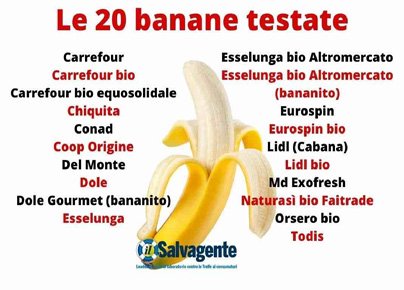Italy: Pesticide Residues Found on Bananas Sold in Supermarkets
2023-12-29

According to a report by an Italian newspaper, pesticides were found in bananas sold in some supermarkets. Pesticide residues were also found in the fruit pulp and not just on the peels. According to the report, only 3 out of 20 brands were saved, with Lidl, Carrefour, and Esselunga at the bottom of the ranking. A new test carried out by the Italian magazine 'Il Salvagente that offers news, insights, and advice on health, environment, economy, and society issues has found that the banana peel is not enough to act as a barrier; in fact, traces of pesticides and chemical substances were also found in the pulp. 'Il Salvagente' analyzed 20 brands of bananas sold in Italian supermarkets and discount stores.
The results showed that not even organic bananas were free from pesticide contamination. The analysis shows that, except for only three products, the tests on the banana pulp conducted by 'Il Salvagente' revealed the presence of traces of pesticides, although always in quantities below the legal limits. But the alarming fact is that traces of multiple substances have been found on the same fruit.
Even if the chemical substances were below the legal limits, the well-known magazine penalized brands contaminated by neonicotinoids, such as imidacloprid, thiamethoxam and chlorfenapyr, a class of insecticides that seriously endanger bees. The E.U. is trying in every way to ban this class of insecticides despite the continuous exemptions requested by some states, including France.
However, regarding the other substances detected in the samples, it was only possible to make distinctions since the safety levels are similar, and despite being dangerous, they are substances authorized in Europe. However, according to 'Il Salvagente' it is necessary to make a report regarding gibberellic acid, which was regulated until 2014 when E.U. Regulation 588 came into force, which eliminated its legal limits despite the EPA, the Authority for the Protection of U.S. Human and Environmental Health, has classified it as a mildly toxic pesticide.
The analysis showed that even organic bananas were not immune to pesticide contamination: a bitter surprise. The magazine tried to find out more by contacting the companies Esselunga and Carrefour, who were surprised by the traces of pesticides found in the products they marketed. Esselunga immediately took steps to block imports of bananas and other foods from the same producer, while Carrefour started control procedures.
#sopisconews #banana #banano #bananatrade #bananastatistic









